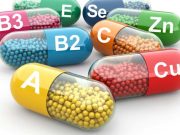Welcome to our blog, where we delve into the topic of eating disorders, their complexities, and the importance of raising awareness about these mental health conditions. Join us as we explore the different types of eating disorders, their causes and risk factors, the impact on individuals’ physical and emotional well-being, and the available treatment options and support for recovery.
Understanding Eating Disorders:
1.1 Defining Eating Disorders:
Exploring the different types of eating disorders, including anorexia nervosa, bulimia nervosa, binge eating disorder, and others.
Discussing the common characteristics and behaviors associated with each disorder.
1.2 Causes and Risk Factors:
Examining the multifaceted nature of eating disorders, including biological, psychological, and sociocultural factors.
Discussing the role of genetics, body image dissatisfaction, societal pressures, and perfectionism in the development of eating disorders.
1.3 Myths and Misconceptions:
Addressing common myths and misconceptions surrounding eating disorders.
Promoting accurate information to reduce stigma and increase understanding.
Signs, Symptoms, and Diagnosis:
2.1 Physical and Behavioral Signs:
Identifying the physical signs and symptoms of eating disorders, such as significant weight changes, irregular menstrual cycles, and preoccupation with food and body image.
Discussing the behavioral patterns, including secretive eating habits, excessive exercise, and self-induced vomiting.
2.2 Psychological and Emotional Symptoms:
Exploring the psychological and emotional symptoms associated with eating disorders, such as low self-esteem, anxiety, depression, and distorted body image.
Discussing the impact of these symptoms on individuals’ overall well-being.
2.3 Seeking Professional Help:
Highlighting the importance of early intervention and seeking professional help for diagnosis and treatment.
Discussing the role of healthcare providers, therapists, and support networks in the recovery process.
Treatment and Recovery:
3.1 Multidisciplinary Approach:
Exploring the multidisciplinary approach to treating eating disorders, involving medical, psychological, and nutritional interventions.
Discussing the role of a healthcare team in developing personalized treatment plans.
3.2 Psychotherapy and Counseling:
Examining different psychotherapeutic approaches, such as cognitive-behavioral therapy (CBT) and dialectical behavior therapy (DBT), in addressing underlying issues and promoting healthier behaviors and attitudes towards food and body image.
3.3 Nutritional Rehabilitation:
Discussing the importance of nutrition education, meal planning, and supervised eating to restore a healthy relationship with food and establish regular eating patterns.
3.4 Medication:
Addressing the potential role of medication in the treatment of eating disorders, particularly in managing co-occurring mental health conditions such as depression or anxiety.
3.5 Support and Aftercare:
Highlighting the significance of ongoing support and aftercare in the recovery process.
Discussing the role of support groups, outpatient programs, and relapse prevention strategies.
Prevention and Awareness:
4.1 Promoting Positive Body Image:
Discussing the importance of promoting positive body image and self-acceptance.
Highlighting the need to challenge societal beauty standards and embrace diverse body shapes and sizes.
4.2 Early Intervention and Education:
Emphasizing the importance of early intervention and education in schools, communities, and healthcare settings.
Discussing the role of awareness campaigns in reducing stigma and promoting help-seeking behaviors.
4.3 Media Literacy and Responsible Reporting:
Addressing the impact of media on body image and self-esteem.
Promoting media literacy and responsible reporting to prevent the glorification of unhealthy eating behaviors.
Conclusion:
As we conclude our exploration of eating disorders, we recognize the importance of understanding these complex mental health conditions and offering support to those affected. By raising awareness, promoting early intervention, and providing comprehensive treatment and support, we can facilitate recovery and help individuals develop a healthy relationship with food and their bodies. Join us in future blog posts as we continue to address mental health topics, share stories of resilience, and advocate for a society that fosters self-acceptance and well-being.
























